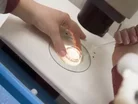IVF mistakes treble in three years

Figures released by the Human Fertilisation and Embryology Authority (HFEA) have revealed errors and mistakes during IVF procedures have trebled in the last three years.
Between April 2010 and March 2011 incidences of lost patient embryos or sperm stood at 564, compared to 182 during April 2007 and March 2008.
Meanwhile, the number of serious category A or B errors has increased more than four times, rising from 62 during 2007-8 to 275 in 2010-11.
Examples of category A or B errors include embryos being accidently destroyed, an egg being fertilised with the wrong sperm or being implanted into the wrong woman.
READ MORE FROM THE WDM CONTENT NETWORK:
To read the latest edition of Healthcare Global, click here
- Survey reveals cancer is the most ‘feared’ disease
- Drastic action needed to reduce global salt intake
- Sunbed addiction similar to alcohol and drug dependency
The huge rise in such mistakes has raised concerns about the standards of practice in IVF clinics across the UK and even the stringency of the HFEA regulation.
The figures were released by HFEA after a Freedom of Information request by Irwin Mitchell solicitors.
They believe a shift in the way the HFEA regulates errors and mistakes could result in inconsistency or ineffectiveness when it comes to responding to such incidents.
As a result, it is thought some clinics could be able to escape the HFEA inspection or sanctions and therefore avoid forced closure.
Guy Forster, a solicitor from Irwin Mitchell said: “Although it should be recognised that 564 incidents represents a small proportion of the 50,000 IVF cycles carried out in the UK each year, when things do go wrong, it causes the most unimaginable heartache for those involved and it is vital that both the clinic in question and the IVF industry as a whole learn lessons for the future.
He added: “When patients choose to undergo IVF treatment they have the right to know if their clinic has a poor record of incidents, in the same way that clinics are keen to promote their success rates.”
Meanwhile, a statement released by the HFEA said: “The HFEA openly encourages the reporting of incidents and continues to work closely with centres to improve quality. As a result, centres are continuing to respond positively to the opportunity to share lessons learned from incidents which have been reviewed and vigorously investigated.”



